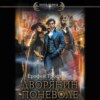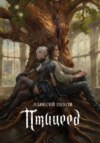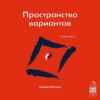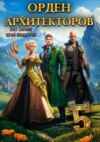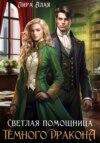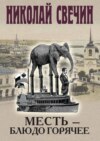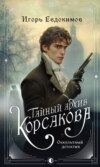Читать книгу: «Personal Sketches of His Own Times, Vol. 3 (of 3)», страница 3
DANGERS OF REFLECTION
Personal description of Counsellor Conaghty – Singular contrast of physical roughness and mental suavity – A legal costume – The Counsellor’s marriage – The bride described – Her plan for inducing her husband to sacrifice to the Graces – The fatal mirror – The Counsellor views himself in a new light – His consternation and false persuasion – The devil unjustly accused – Conaghty’s illness and death.
The most extraordinary instance I recollect of a sudden affection of the mind being fatal to the body was presented by an old acquaintance of mine, Counsellor Conaghty, a gentleman of the Irish bar, who pined and died in consequence of an unexpected view of his own person; but by no means upon the same principle as Narcissus.
Mr. Conaghty was a barrister of about six feet two inches in length; his breadth was about three feet across the shoulders; his hands splay, with arms in full proportion to the rest of his members. He possessed, indeed, a set of limbs that would not have disgraced a sucking elephant; and his body appeared slit up two-thirds of its length, as if Nature had originally intended (which is not very improbable) to have made twins of him – but finding his brains would not answer for two, relinquished her design. His complexion, not a disagreeable fawn-colour, was spotted by two good black eyes, well intrenched in his head, and guarded by a thick chevaux de frise of curly eyebrows. His mouth, which did not certainly extend, like a john-dory’s, from ear to ear, was yet of sufficient width to disclose between thirty and forty long, strong, whitish tusks, the various heights and distances whereof gave a pleasing variety to that feature. Though his tall countenance was terminated by a chin which might, upon a pinch, have had an interview with his stomach, still there was quite enough of him between the chin and waistband to admit space for a waistcoat, without the least difficulty.
Conaghty, in point of disposition, was a quiet, well-tempered, and, I believe, totally irreproachable person. He was not unacquainted with the superficies of law, nor was he without professional business. Nobody, in fact, disliked him, and he disliked nobody. In national idiom, and Emerald brogue, he unquestionably excelled (save one) all his contemporaries. Dialogues sometimes occurred in Court between him and Lord Avonmore, the Chief Baron, which were truly ludicrous.
The most unfortunate thing, however, about poor Conaghty, was his utter contempt for what fastidious folks call dress. – As he scorned both garters and suspenders, his stockings and small-clothes enjoyed the full blessings of liberty. A well-twisted cravat, as if it feared to be mistaken for a cord, kept a most respectful distance from his honest throat – upon which the neighbouring beard flourished in full crops, to fill up the interstice. His rusty black coat, well trimmed with peeping button-moulds, left him, altogether, one of the most tremendous figures I ever saw, of his own profession.
At length it pleased the Counsellor, or old Nick on his behalf, to look out for a wife; and, as dreams go by contraries, so Conaghty’s perverse vision of matrimonial happiness induced him to select a sposa very excellent internally, but in her exterior as much the reverse of himself as any two of the same species could be.
Madam Conaghty was (and I dare say still is) a neat, pretty, dressy little person: her head reached nearly up to her spouse’s hip; and if he had stood wide, to let her pass, she might (without much stooping) have walked under him as through a triumphal arch.
He was quite delighted with his captivating fairy, and she equally so with her good-natured giant. Nothing could promise better for twenty or thirty years of honey-moons, when an extraordinary and most unexpected fatality demonstrated the uncertainty of all sublunary enjoyments, and might teach ladies who have lost their beauty the dangers of a looking-glass.
The Counsellor had taken a small house, and desired his dear little Mary to furnish it to her own dear little taste. This, as new-married ladies usually do, she set about with the greatest zeal and assiduity. She had a proper taste for things in general, and was besides extremely anxious to make her giant somewhat smarter; and, as he had seldom in his life had any intercourse with looking-glasses larger than necessary just to reflect his chin whilst shaving, she determined to place a grand mirror in her little drawing-room, extensive enough to exhibit the Counsellor to himself from head to foot – and which, by reflecting his loose, shabby habiliments, and tremendous contour, might induce him to trim himself up.
This plan was extremely promising in the eyes of little Mary; and she had no doubt it would be entirely consonant with her husband’s own desire of Mrs. Conaghty’s little drawing-room being the nicest in the neighbourhood. She accordingly purchased, in Great George Street, at a very large price, a looking-glass of sufficing dimensions, and it was a far larger one than the Counsellor had ever before noticed.
When this fatal reflector was brought home, it was placed leaning against the wall in the still unfurnished drawing-room, – and the lady, having determined at once to surprise and reform her dear giant, did not tell him of the circumstance. The ill-fated Counsellor, wandering about his new house – as people often do toward the close of the evening – that interregnum between sun, moon, and candlelight, when shadows are deep and figures seem lengthened – suddenly entered the room where the glass was deposited. Unconscious of the presence of the immense reflector, he beheld, in the gloom, a monstrous and frightful Caliban – wild, loose, and shaggy, – standing close and direct before him; and, as he raised his own gigantic arms in a paroxysm of involuntary horror, the goblin exactly followed his example, lifting its tremendous fists, as if with a fixed determination to fell the Counsellor, and extinguish him for ever.
Conaghty’s imagination was excited to its utmost pitch. Though the spectre appeared larger than any d – l on authentic record, he had no doubt it was a genuine demon sent express to destroy his happiness and carry him to Belzebub. As his apprehensions augmented, his pores sent out their icy perspiration: he tottered – the fiend too was in motion! his hair bristled up, as it were like pikes to defend his head. At length his blood recoiled, his eyes grew dim, his pulse ceased, his long limbs quivered – failed; and down came poor Conaghty with a loud shriek and a tremendous crash. His beloved bride, running up alarmed by the noise, found the Counsellor as inanimate as the boards he lay on. A surgeon was sent for, and phlebotomy was resorted to as for apoplexy, which the seizure was pronounced to be. His head was shaved; and by the time he revived a little, he had three extensive blisters and a cataplasm preparing their stings for him.
It was two days before he recovered sufficiently to tell his Mary of the horrid spectre that had assailed him – for he really thought he had been felled to the ground by a blow from the goblin. Nothing, indeed, could ever persuade him to the contrary, and he grew quite delirious.
His reason returned slowly and scantily; and when assured it was only a looking-glass that was the cause of his terror, the assurance did not alter his belief. He pertinaciously maintained, that this was only a kind story invented to tranquillise him. “Oh, my dearest Mary!” said poor Conaghty, “I’m gone! – my day is come – I’m called away for ever. Oh! had you seen the frightful figure that struck me down, you could not have survived it one hour! Yet why should I fear the d – l? I’m not wicked, Mary! No, I’m not very wicked!”
A thorough Irish servant, an old fellow whom the Counsellor had brought from Connaught, and who of course was well acquainted with supernatural appearances, and had not himself seen the fatal mirror, – discovered, as he thought, the real cause of the goblin’s visit, which he communicated to his mistress with great solemnity, as she afterward related.
“Mistress,” said the faithful Dennis Brophy, “Mistress, it was all a mistake. By all the books in the master’s study, I’d swear it was only a mistake! – What harm did ever my master do nobody? and what would bring a d – l overhauling a Counsellor that did no harm? What say could he have to my master?”
“Don’t teaze me, Dennis,” said the unhappy Mary; “go along! – go!”
“I’ll tell you, mistress,” said he; “it was a d – l sure enough that was in it!”
“Hush! nonsense!” said his mistress.
“By J – s! it was the d – l, or one of his gossoons,” persisted Dennis; “but he mistook the house, mistress, and that’s the truth of it!”
“What do you mean?” said the mistress.
“Why, I mane that you know Mr. – lives on one side of us, and Mr. – lives at the other side, and they are both attornies, and the people say they’ll both go to him: and so the d – l, or his gossoon, mistook the door, and you see he went off again when he found it was my master that was in it, and not an attorney, mistress.”
All efforts to convince Conaghty he was mistaken were vain. The illusion could not be removed from his mind; he had received a shock which affected his whole frame; a constipation of the intestines took place; and in three weeks, the poor fellow manifested the effects of groundless horror in a way which every one regretted.
FORMER STATE OF MEDICINE IN IRELAND
Remarks on Sir Charles Morgan’s account of the Former State of Medicine in Italy – The author’s studies in the Anatomical Theatre of Dublin University – Dr. Burdet – Former importance of farriers and colloughs – Jug Coyle, and her powers of soliloquy – Larry Butler, the family farrier, described – Luminous and veritable account of the ancient colloughs – The faculty of the present day – Hoynhymms and Yahoos – Hydrophobia in Ireland, and its method of cure.
Doctor Sir Charles Morgan has given us, at the conclusion of his lady’s excellent work “Italy,” the state of “medicine” in that country. Our old cookery books, in like manner, after exquisite receipts for all kinds of dainties, to suit every appetite, generally finished a luxurious volume with remedies for the “bite of a mad dog – for scald heads – ague – burns – St. Anthony’s fire – St. Vitus’s dance – the tooth-ache,” &c. &c. Now, though the Doctor certainly did not take the cooks by way of precedent, that is no reason why I should not indulge my whim by citing both examples, and garnishing this volume with “the state of medicine in Ireland” fifty years ago.
I do not, however, mean to depreciate the state of medicine in these days of “new lights” and novelties, when old drugs and poisons are nicknamed, and every recipe is a rebus to an old apothecary. Each son of Galen now strikes out his own system; composes his own syllabus; and finishes his patients according to his own proper fancy. When a man dies after a consultation (which is generally the case – the thing being often decided by experiment) – there is no particular necessity for any explanation to widows, legatees, or heirs-at-law; the death alone of any testator being a sufficient apology to his nearest and dearest relatives for the failure of a consultation – that is, if the patient left sufficient property behind him.
My state of Irish medicine, therefore, relates to those “once on a time” days, when sons lamented their fathers,4 and wives could weep over expiring husbands; when every root and branch of an ancient family became as black as rooks for the death of a blood relation, though of almost incalculable removal. In those times the medical old woman and the surgeon-farrier – the bone-setter and the bleeder – were by no means considered contemptible practitioners among the Christian population – who, in common with the dumb beasts, experienced the advantages of their miscellaneous practice.
An anatomical theatre being appended to the University of Dublin, whenever I heard of a fresh subject, or remarkable corpse, being obtained for dissection, I frequently attended the lectures, and many were the beauteous women and fine young fellows then carved into scraps and joints pro bono publico.5 I thereby obtained a smattering of information respecting our corporeal clockwork; and having, for amusement, skimmed over “Cullen’s First Lines,” “Every Man his Own Doctor,” “Bishop Berkeley on Tar Water,” and “Sawny Cunningham on the Virtues of Fasting Spittle,” I almost fancied myself qualified for a diploma. A Welsh aunt of mine, also, having married Doctor Burdet, who had been surgeon of the Wasp sloop of war, and remarkable for leaving the best stumps of any naval practitioner, he explained to me the use of his various instruments for tapping, trepanning, raising the shoulder-blades, &c. &c.: but when I had been a short time at my father’s in the country, I found that the farriers and old women performed, either on man or beast, twenty cures for one achieved by the doctors and apothecaries. I had great amusement in conversing with these people, and perceived some reason in their arguments.
As to the farriers, I reflected, that as man is only a mechanical animal, and a horse one of the same description, there was no reason why a drug that was good for a pampered gelding might not also be good for the hard-goer mounted on him. In truth, I have seen instances where, in point both of intellect and endurance, there was but very little distinction between the animals – save that the beverage of the one was water, and that of the other was punch– and, in point of quantity, there was no great difference between them in this matter either.
At that time there was seldom more than one regular doctor in a circuit of twenty miles, and a farrier never came to physic a gentleman’s horse that some boxes of pills were not deducted from his balls, for the general use of the ladies and gentlemen of the family; and usually succeeded vastly better than those of the apothecary.
The class of old women called colloughs were then held in the highest estimation, as understanding the cure (that is if God pleased) of all disorders. Their materia medica did not consist of gums, resins, minerals, and hot iron, – as the farriers’ did; but of leaves of bushes, bark of trees, weeds from churchyards, and mushrooms from fairy grounds; rue, garlic, rosemary, birds’-nests, foxglove, &c.: in desperate cases they sometimes found it advisable to put a charm into the bolus or stoop, and then it was sure to be “firm and good.” I never could find out what either of their charms were. They said they should die themselves if they disclosed them to any body. No collough ever could be a doctor whilst she had one tooth remaining in her head, as the remedy was always reduced to a pulp or paste by her own mumbling of its materials, and the contact of an old grinder would destroy the purity of the charms and simples, and leave the cure, they would say, no better than a farrier’s.
Our old collough, Jug Coyle, as she sat in a corner of the hob, by the great long turf fire in the kitchen, exactly in the position of the Indian squaws, munching and mumbling for use an apron-full of her morning’s gatherings in the fields, used to talk at intervals very sensibly of her art. “Ough! then, my dear sowl, (said she one evening,) what would the poor Irishers have done in owld times but for their colloughs? Such brutes as you!” continued she, (looking at Butler, the farrier of the family, who was seated fast asleep on a bench at the opposite end of the hearth,) “’tis you, and the likes of you, a curse on you, root and branch! that starved the colloughs by giving your poisons to both cows and quality. Sure its the farriers’ and pothecaries’ drugs that kills all the people-ay, and the horses and cattle too,” and she shook her claw-like fist at the unconscious farrier.
“Jug Coyle,” said I, “why are you so angry?”
Jug: – “Sure it’s not for myself, it’s for my calling,” said she: “a thousand years before the round towers were built (and nobody can tell that time), the colloughs were greater nor any lady in the country. We had plenty of charms in those days, Master Jonah, till the farriers came, bad luck to the race! Ough! may the curse of Crummell light on yees all, breed, seed, and generation, Larry Butler! not forgetting Ned Morrisy of Clapook, the villanous cow-doctor, that takes the good from the colloughs likewise, and all – ”
Here Jug Coyle stopped short, as the farrier opened his eyes, and she knew well that if Larry Butler had a sup in, he would as soon beat an old woman as any body else. She therefore resumed munching her herbs, but was totally silenced.
Larry Butler was one of the oldest and most indispensable attachés of our family. Though nobody remembered him a boy, he was as handy, as fresh, and as rational, perhaps more so, than half a century before. Short, broad, and bow-legged, bone and muscle kept his body together – for flesh was absent. His face, once extremely handsome, still retained its youthful colouring – though broken and divided: his sharp eye began to exhibit the dimness of age: the long white hair had deserted his high forehead, but fell, in no scanty locks, down each side of his animated countenance. He is before my eye at this moment – too interesting, and, at the same time, odd a figure ever to be forgotten.
I had a great respect for old Butler: he was very passionate, but universally licensed: he could walk any distance, and always carried in his hand a massive firing-iron. I have thus particularly described the old man, as being one of the most curious characters of his class I ever met in Ireland.
Larry soon showed signs of relapsing into slumber; but Jug, fearing it was a fox’s sleep (an old trick of his), did not recommence her philippic on the farriers, but went on in her simple praise of the collough practice. “Sure,” said she, “God never sent any disorder into a country that he did not likewise send something to cure it with.”
“Why, certainly, Jug,” said I, “it would be rather bad treatment if we had no cures in the country.”
“Ough! that saying is like your dear father,” said she, “and your grandfather before you, and your great-grandfather who was before him agin. Moreover,” pursued Jug, “God planted our cures in the fields because there was no pothecaries.”
“Very true, Jug,” said I.
“Well, then, Master Jonah,” resumed she, “if God or the Virgin, and I’m sure I can’t say which of them, planted the cures, sure they must have made people who knew how to pick them up in the fields, or what good is their growing there?”
“There’s no gainsaying that, Jug,” gravely observed I.
“Well, then, it was to the colloughs, sure enough, God gave the knowledge of picking the cures up – because he knew well that they were owld and helpless, and that it would be a charity to employ them. When once they learned the herbs, they were welcome every where; and there was not one man died in his bed (the people say) in owld times for twenty now-a-days.”
“Of that there is no doubt, Jug,” said I, “though there may be other reasons for it.”
“Ough! God bless you agin, avourneen! any how,” said Jug. “Well, then, they say it was Crummell and his troopers, bad luck to their sowls, the murdering villains! that brought the first farriers (and no better luck to them!) to Ireland, and the colloughs were kilt with the hunger. The craturs, as the owld people tell, eat grass like the beasts when the cows were all kilt by the troopers and farriers – avourneen, avourneen!”
Modern practitioners will perceive, by these two specimens of our ancient doctors, that the state of medicine in Ireland was totally different from that in Italy. Surgery being likewise a branch of the healing art, no doubt also differed in the two countries, in a similar degree. I shall therefore give a few instances of both medico-surgical and surgico-medical practice fifty years ago in Ireland; and if my talented friend, Lady Morgan, will be so good as to inquire, she will find, that though she has left medicine so entirely to her lord, she may get an admirable doctor or two to introduce into her next Irish imaginations– which I hope will be soon forthcoming – certainly not sooner than agreeable and welcome.
I must here notice a revolution; namely, that of late, since farriers have got a “step in the peerage,” and are made commissioned officers in the army, they think it proper to refine their pharmacopeia so as to render it more congenial to their new rank and station, and some horses are now not only theoretically but practically placed on more than a level with the persons who mount them.
The practice of horse medicine is indeed so completely revolutionised, that gas, steam, and the chemistry of Sir Humphrey Davy, are resorted to for the morbid affections of that animal in common with those of a nobleman. The horse, now, regularly takes his hot bath like my lord and lady, James’ powders, refined liquorice, musk, calomel, and laudanum, with the most “elegant extracts” and delicate infusions. As if Gulliver were a prophet, he literally described, in the reign of Queen Anne, both the English horse and the Irish peasant as they exist at the present moment. If the lodging, clothing, cleaning, food, medicine, and attendance of the modern Hoynhymm, be contrasted with the pig-sty, rags, filth, neglect, and hunger of the Yahoo, it must convince any honest neutral that Swift (that greatest of Irishmen) did not overcharge his satire. The sum lavished upon the care of one Hoynhymm for a single day, with little or nothing to do, is more (exclusive of the farrier) than is now paid to five Irish Yahoos for twelve hours’ hard labour, with to feed, clothe, lodge, and nourish themselves, and probably five wives and twenty or thirty children, for the same period, into the bargain.
A few very curious cases may elucidate our ancient practice of cure – a practice, I believe, never even heard of in any other part of Europe. The bite of a mad dog was to the Irish peasantry of all things the most puzzling and terrific; and I am sure I can scarcely guess what Doctor Morgan will think of my veracity when I state the two modes by which that horrible mania was neutralised or finally put an end to.
When the bite of a dog took place, every effort was made to kill the beast, and if they succeeded, it was never inquired whether he actually was, or (as the colloughs used to say) pretended to be mad: his liver was immediately taken out, dried by the fire till quite hard, then reduced to powder, and given in frequent doses with a draught of holy or blessed water, to the patient for seven days. If it happened that the saliva did not penetrate the sufferer’s clothes, or if the dog was not actually mad, it was then considered that the patient was cured by drinking the dog’s liver and holy water; – and if it so happened that the bite set him barking, then the priest and farrier told them it was the will of God that he should bark, and they were contented either to let him die at his leisure, or send him to heaven a little sooner than was absolutely necessary.
The herbs of the colloughs were sometimes successfully resorted to; whether accidental or actual preventives or antidotes, it is not easy to determine: but when I detail the ulterior remedy to cure the hydrophobia in Ireland, or at least to render it perfectly innoxious, I am well aware that I shall stand a good chance of being honoured by the periodicals with the appellation of a “bouncer,” as on occasion of the former volumes: but the ensuing case, as I can personally vouch for the fact, I may surely give with tolerable confidence.










